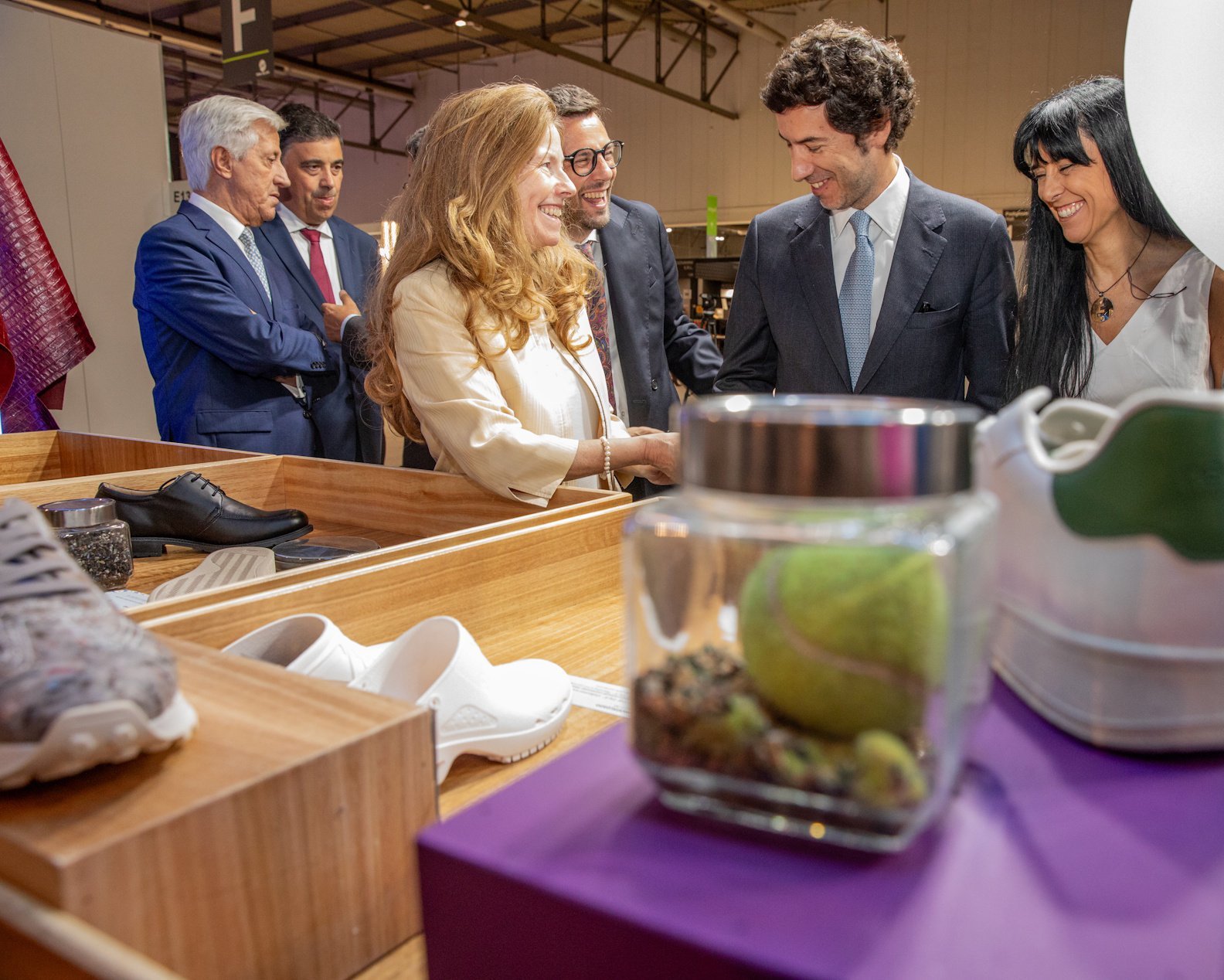The 100th edition of MICAM, the largest footwear fair in the world, which took place from the 7th to the 9th of September in Milan, came to an end.
Forty-two footwear companies attended the most important international footwear trade fair. In addition, over the course of a month, more than 80 Portuguese companies took part in various events in Milan as part of an initiative by APICCAPS and AICEP, supported by the Compete 2030 programme.
MICAM 100 welcomed 870 brands, 401 of which were Italian and 469 of which were international. These brands showcased their latest footwear styles to over 20,000 buyers from 126 countries. This commemorative edition featured fashion shows and conferences dedicated to innovation, as well as a historical exhibition on the footwear sector and the issuance of a commemorative stamp.
The Portuguese delegation at MICAM was visited by the State Secretary of Economy, João Rui Ferreira, who said he knew the business landscape well and that Portugal had all the conditions necessary to generate optimism. "Portugal has to be a value country, not a volume country”, he says, underlining that "innovation is an essential pillar” for all Portuguese companies "to stand out at a competitive level”.
Olive stones and orange peel are given a new life
To meet consumer demands, the BioShoes4All project presented 44 innovative and sustainable solutions at the 100th edition of MICAM. These solutions highlight a new generation of products, materials, and techniques that improve leather and find potential in by-products from the food industry, without compromising the durability of the final product.
In Milan, BioShoes4All has attracted the interest of international customers and is preparing to launch new developments, including the use of marine by-products. Based on five pillars – biomaterials, eco-friendly footwear, the circular economy, advanced production technologies, and training and promotion – the project also plans to launch 20 industrial pilot lines, create 50 new products, and publish dozens of scientific articles.
On the last day of MICAM, João Maia (Director-General of APICCAPS) moderated the ‘BioShoes4All: Paving the Way to a Sustainable Footwear Industry’ conference, which featured presentations on ‘The Footwear Industry in the World’ by Joana Vaz Teixeira (World Footwear), ‘A New Generation of Products’ by Maria José Ferreira (BioShoes4All, CTCP) and ‘The Importance of Ecodesign’ by Matteo Pasca (Arsutoria School).
Portugal was in the spotlight with the BioShoes4All project, ranking among the five most represented countries at the event, which is considered the largest worldwide display of the footwear industry. The national delegation comprised 42 companies that focused on innovation and sustainability.
The BioShoes4All project is the largest investment ever made in the sector. Involving 70 partners, including companies, universities, associations, and technology centres, it has a budget of 62 million euros, 40 million euros of which is financed by the PRR. Its main goal is to accelerate the footwear cluster’s transition to circular and bio-based economies.
Luís Onofre emphasises that, "amid a challenging international context with several fragile reference markets, we are resolutely returning to international markets”. The APICCAPS President highlights that Portuguese companies benefit not relying on one single market and assumes that "2025 will be the year of consolidation for Portuguese footwear in international markets”. However, he acknowledges "the current instability of the international market”.
In Milan, João Rui Ferreira argues that "it is not only Portuguese companies who want to attend MICAM right now, but the trade fair itself that wants them there”.
Sustainability is not just a trend. It has become urgent for the footwear industry to prioritise this issue, given that most consumers now take it into account when purchasing a new product. In fact, a recent study carried out by APICCAPS in partnership with the Portuguese Catholic University shows that nine in ten respondents say they have adopted healthy purchasing habits.
Components that can be used in leather treatment or for making components such as insoles are now extracted from waste that previously had no value. This ensures that footwear is both sustainable and hard-wearing. Examples of waste that is gaining new life include olive stones, orange peel, vine pruning, coffee grounds, rice husks, olive tree extracts and mussels, all of which promote the circular economy.
CTCP Research Director and BioShoes4All coordinator Maria José Ferreira praised the involvement of the dozens of companies and entities that make up the project consortium, saying that they had collaborated fruitfully with a view to developing solutions that enable more sustainable materials, products, and processes.

